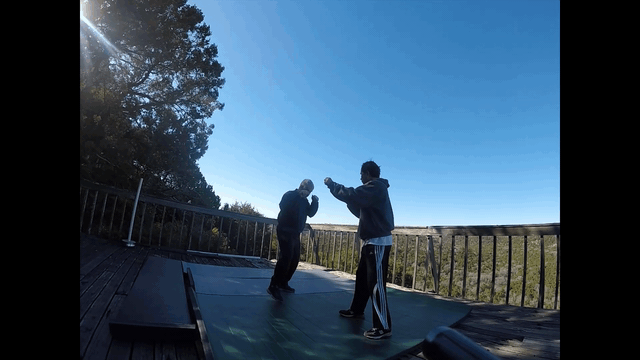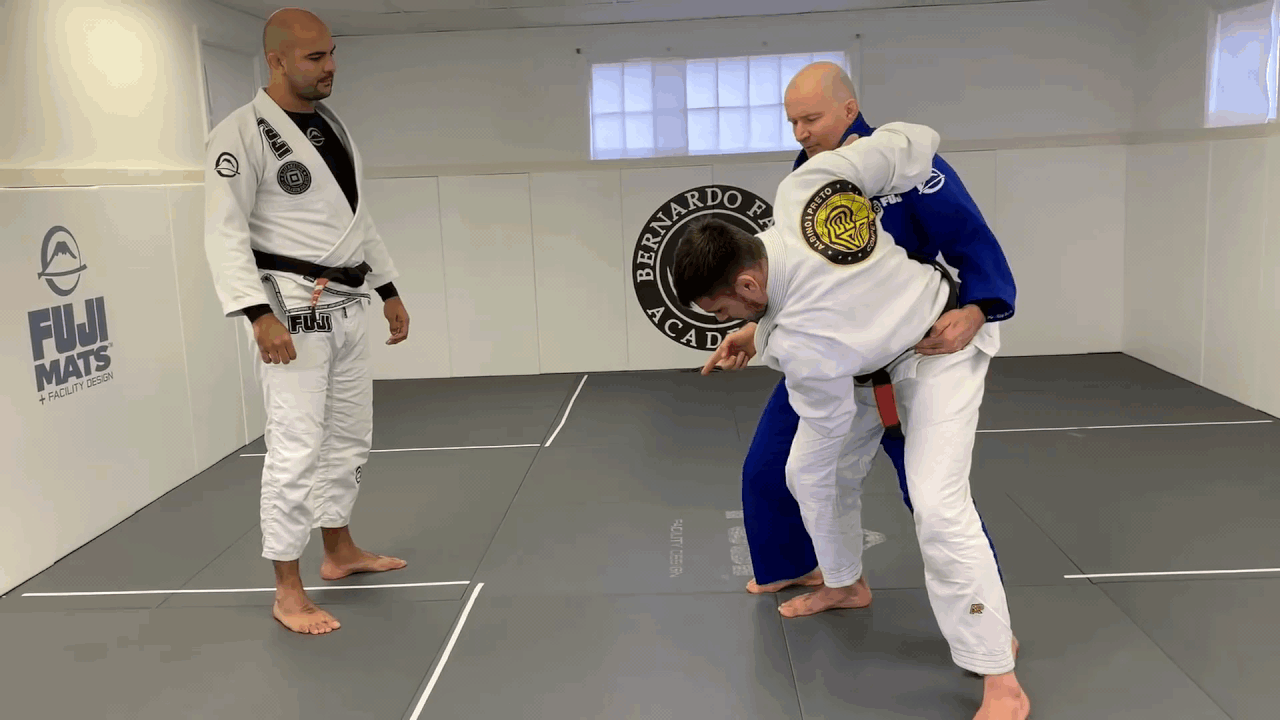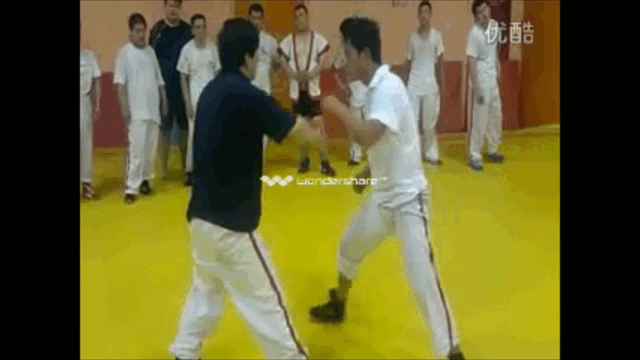If A trains "guard pull" for 5 years, and B trains "under hook leg spring" for 5 years. When B does "under hook leg spring" on A,I'm talking about Guard pulls.
- A's left arm is controlled by B's both hand.
- A's right hand cannot reach to B.
- A is forced into a bow-arrow stance. This make A's backward pull impossible.
What chance will A have at that moment. Can A still apply "guard pull"?
The under hook is easy to obtain. A hook punch followed by an arm extending can do the job. The leg spring followed by a knee strike on the face can be deadly. Can one use "guard pull" to solve all this issues?
I don't believe "guard pull" can be a master key that open all locks. One still must know how to deal with under hook, over hook, head lock, waist wrap, bear hug, ... In other words, one still must master the stand up wrestling skill.

Last edited:



